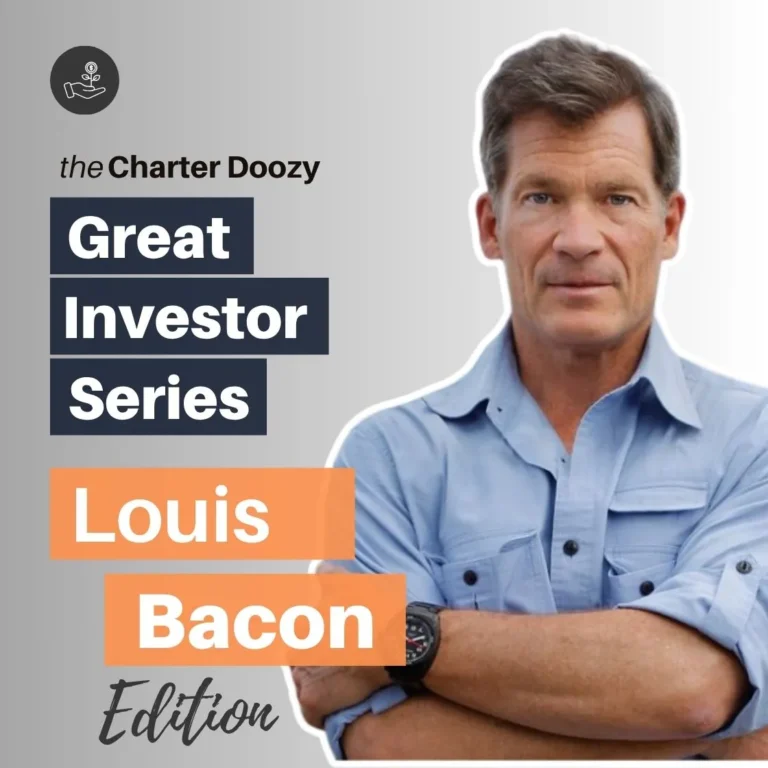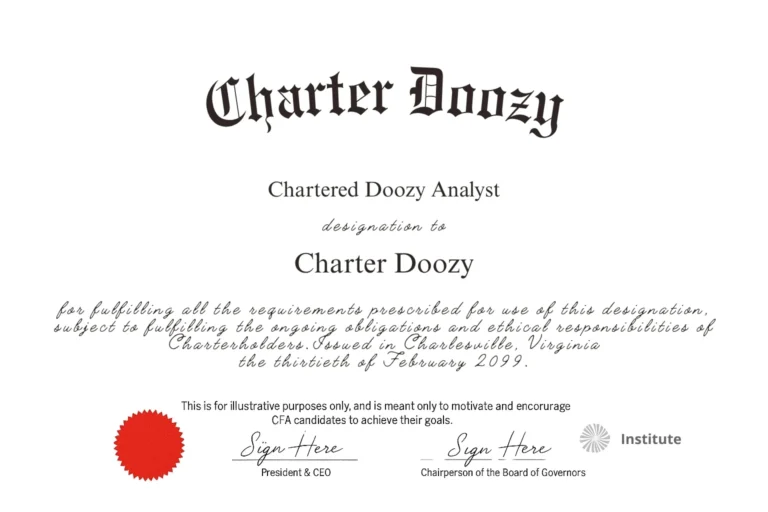⭐ Louis Bacon – Quick Facts
Riding the Trade Winds of Crisis
In October 1987, as markets across the globe imploded on Black Monday, a young trader sat in the chaos of Shearson Lehman’s trading floor, watching screens flash red. Instead of panicking, he methodically placed trades that would not only protect his book but produce a profit of over $1 million in a single day. Years later, he’d recall: “It taught me that in markets, the pain is where the opportunity is.” That trader was Louis Moore Bacon — one of the most influential macro hedge fund managers of his generation. While names like Soros and Druckenmiller often grab headlines for bold macro bets, Bacon remains a quieter, elusive figure whose trading prowess and risk discipline have earned him legendary status among the hedge fund elite.
His story is not merely one of outsized profits. It’s a tale of discipline, flexibility, and the ability to navigate uncertainty — qualities that resonate deeply with anyone preparing for the CFA charter, or working in the high-stakes world of global finance.
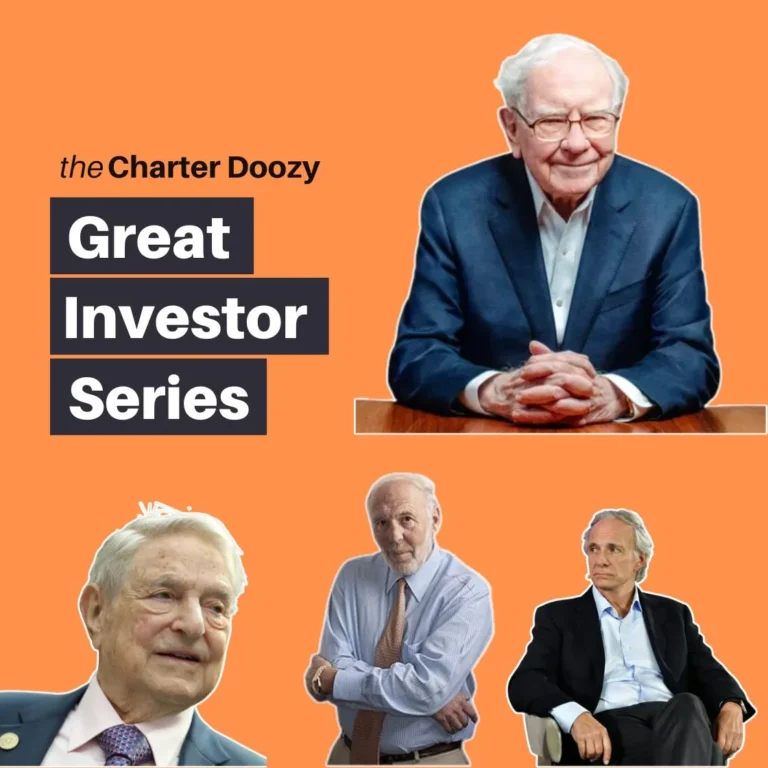
Want to think like the world’s best investors?
Dive into the mindsets, philosophies, and powerful quotes from legends like Soros, Fisher, Dalio, and more. Learn timeless strategies that turn insight into wealth – and transform how you see the markets.
Who is Louis Bacon?
Born in Raleigh, North Carolina, in 1956, Louis Bacon grew up surrounded by the world of finance. His father ran a small brokerage, giving the younger Bacon early exposure to markets and the intricacies of trading. After earning a degree in American Literature from Middlebury College, he completed his MBA at Columbia Business School — a program renowned for producing generations of Wall Street talent.
Unlike many investors known for stock-picking or private equity deal-making, Bacon carved his reputation in the realm of macro investing. He founded Moore Capital Management in 1989 with $25,000 of his own capital and a loan from his mother. Over the following decades, he built Moore into one of the premier global macro hedge funds, generating impressive returns for clients by trading currencies, interest rates, commodities, and equities based on macroeconomic trends and geopolitical developments.
He is famously private, often avoiding the spotlight, and has earned a reputation as a “trader’s trader.” Colleagues and competitors alike describe him as both brilliant and intense, capable of quickly synthesizing information and making decisive bets — yet equally fast to reduce risk when trades turn against him.
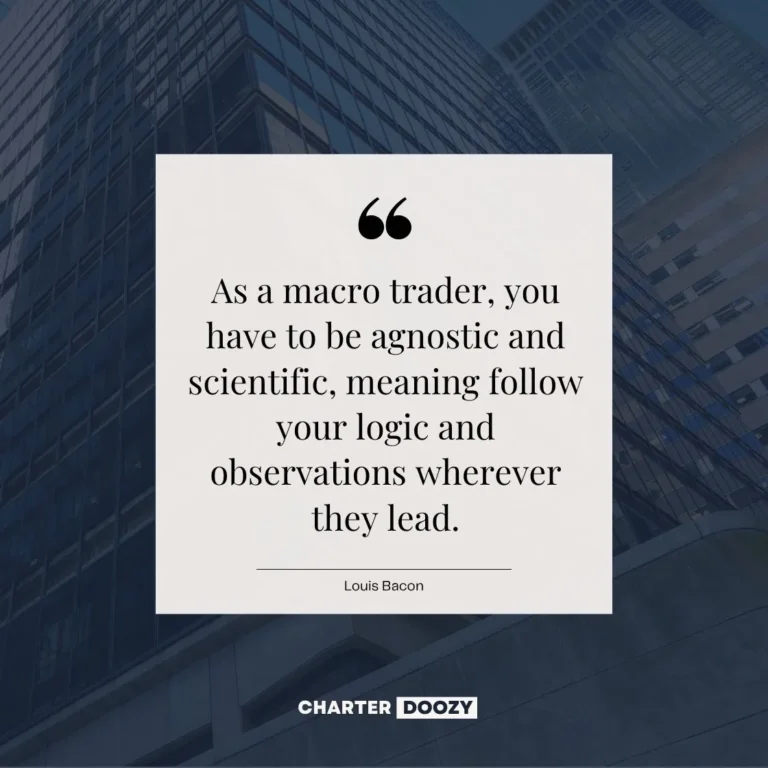
The Core of Bacon’s Macro Philosophy
Global Macro at its Sharpest Edge
Louis Bacon’s approach epitomizes classic global macro trading. His core philosophy revolves around analyzing global economic fundamentals, policy shifts, geopolitical tensions, and inter-market relationships to identify asymmetrical opportunities. Unlike purely quantitative or fundamental stock pickers, Bacon’s method is highly dynamic and multi-asset in scope. He trades futures, options, currencies, sovereign debt, equities, and commodities — often simultaneously — to express a macro view or hedge risk.
Bacon once described his philosophy succinctly: “We try to identify macro trends — not every week, not every month, but perhaps two or three big trades a year where we think we have an edge.”
This mentality dovetails with the CFA curriculum’s emphasis on macroeconomic analysis, monetary and fiscal policy, and global capital markets. Candidates grinding through Level III readings on currency management or derivatives can see the practical manifestation of these concepts in Bacon’s strategies.
Precision in Risk Management
If there’s one hallmark of Bacon’s investing style, it’s his fierce commitment to risk management. He is known for running relatively low leverage compared to peers and for quickly exiting positions that go against him. In an industry where ego and conviction can become fatal flaws, Bacon stands out for his willingness to admit mistakes.
He’s famously quoted as saying:
“The most important thing about trading is to stay in the game.”
This philosophy links directly to topics like Value at Risk (VaR), drawdown limits, and stress testing — staples of the CFA Program. Bacon has repeatedly emphasized that survival, not constant winning, is the key to long-term success.
Flexibility and Non-Consensus Thinking
Another pillar of Bacon’s philosophy is flexibility. He avoids dogmatic views and prefers to adapt quickly when market signals change. This fluid approach allows him to pivot between bullish and bearish positions in response to shifting global currents.
For example, while many traders hold firm convictions about the direction of a currency or rate move, Bacon often trades spreads between markets, aiming to exploit relative mispricings rather than absolute directional bets. This pairs well with concepts like relative value strategies and pairs trading covered in the CFA curriculum.
Notable Stories from Bacon’s Career
Black Monday Baptism
Bacon’s first taste of macro crisis trading came during the 1987 crash. Working as a futures trader, he realized early on that the market’s collapse would spiral into forced liquidations. He took protective positions, shorting the market and buying safe-haven assets. His quick thinking turned chaos into opportunity, cementing his belief in profiting from market dislocations.
This story neatly connects to the CFA’s discussions on volatility spikes, tail risk, and crisis correlations — and serves as a reminder that crises are fertile ground for disciplined professionals.
The Gulf War Bet
One of Bacon’s early defining moments was during the Gulf War in 1991. Expecting oil prices to surge as conflict erupted, he placed significant bets on rising crude. Yet he quickly reversed course when oil prices peaked and began to collapse after the initial shock. While other traders clung to their positions, Bacon took profits and exited, avoiding devastating losses.
This episode illustrates the critical CFA concept of updating investment theses in light of new information — a vital skill for professionals who must reassess their assumptions amid real-world events.
Navigating the 2008 Financial Crisis
Bacon’s performance during the 2008 financial crisis was mixed. While Moore Capital avoided the catastrophic losses suffered by many peers, returns were modest, as the firm struggled with whipsawing markets and extreme government interventions. Bacon’s caution during this period highlighted his emphasis on capital preservation. He scaled back risk significantly rather than chasing volatile trades.
For CFA candidates, this is a living case study in portfolio risk management, liquidity crises, and the limits of models under extreme stress — all areas extensively examined in the curriculum.
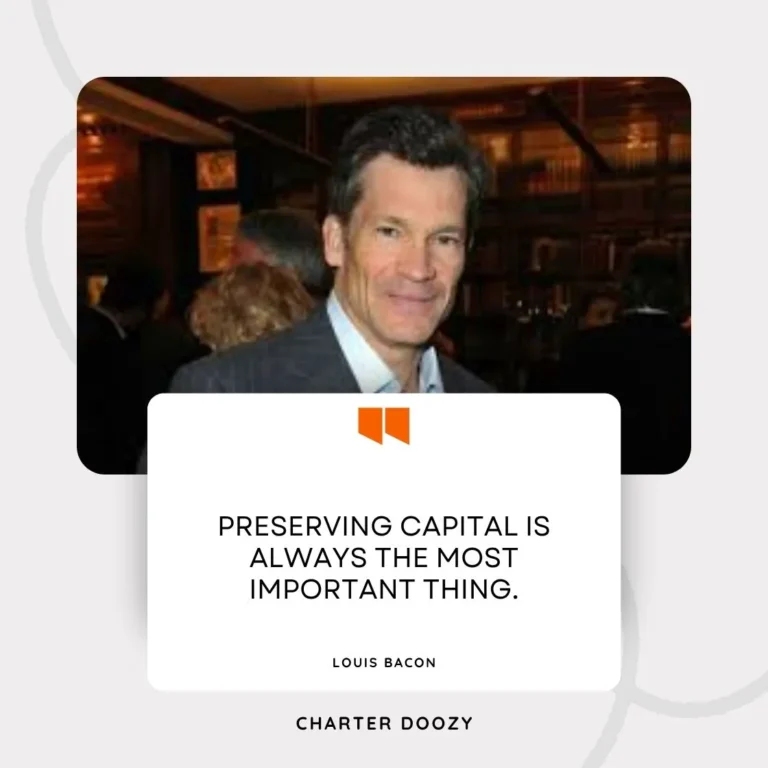
Practical Lessons for CFA Candidates and Professionals
Discipline Over Ego
One of the most powerful lessons from Bacon’s career is the absolute primacy of discipline. His willingness to cut losses, reduce leverage, and avoid overconfidence is a trait CFA candidates should internalize. The program’s relentless focus on risk metrics — from standard deviation to CVaR — is not merely academic; it reflects the real-world survival instincts embodied by traders like Bacon.
Know the Macro Picture — But Be Nimble
Bacon’s ability to integrate macroeconomic data with tactical trading decisions offers a blueprint for investment professionals. CFA candidates wrestling with Level II Economics or Level III currency strategies should recognize that macro knowledge isn’t theoretical. It shapes how capital moves, how currencies fluctuate, and how cross-asset relationships evolve.
Yet Bacon’s example also underscores flexibility. No matter how strong the macro thesis, the ability to pivot quickly is essential. This echoes the CFA curriculum’s emphasis on scenario analysis and active management.
Risk Controls Are Non-Negotiable
Bacon’s legacy is inseparable from his stringent risk protocols. While the CFA curriculum drills candidates on risk measurement, Bacon demonstrates how these tools translate into professional practice. Stress testing, scenario analysis, liquidity management — these are not check-box exercises, but career-defining disciplines.
Psychological Resilience
Trading macro events can be psychologically brutal. Bacon’s career reminds us that even the best traders face losses and doubt. The ability to stay composed, manage stress, and avoid emotional decision-making is crucial — not just for macro traders, but for anyone navigating volatile markets.
Controversies and Debates
Bacon’s career has not been free of challenges. In recent years, global macro as a strategy has faced criticism for underperforming relative to equity indices during prolonged bull markets. Central bank interventions, negative rates, and dampened volatility have made traditional macro signals less reliable.
Moreover, some observers argue that macro funds struggle against algorithmic and quant strategies that execute faster and analyze more data. Bacon himself has acknowledged these headwinds, returning capital to investors in certain funds and downsizing Moore Capital’s operations.
Yet his defenders point out that macro’s cyclical nature inevitably returns to favor when volatility re-emerges — as it did during the COVID-19 crisis and geopolitical tensions in Europe and the Middle East.
For CFA professionals, this debate underscores the importance of understanding strategy cycles, performance attribution, and the limits of historical backtests — critical topics covered throughout the CFA exams.
Further Reading and Resources
For those eager to learn more about Bacon and the world of macro investing, several resources stand out:
- More Money Than God by Sebastian Mallaby – Features engaging profiles of Bacon and other macro legends, offering context on their trading philosophy.
- Interviews with Louis Bacon are rare, but regulatory filings and hedge fund letters occasionally provide insights into his thinking.
- Hedge Fund Market Wizards by Jack Schwager – While not featuring Bacon directly, it offers invaluable lessons from macro traders who share similar principles.
Staying in the Game
Louis Bacon’s career, though less publicized than some of his peers, is a masterclass in disciplined risk-taking, adaptability, and humility before the markets. His story is a vivid reminder that success in finance is not merely about brilliance or bold predictions, but about survival, precision, and constant learning.
For CFA candidates and finance professionals alike, Bacon’s example challenges us to blend theory with practice, to think globally, and to stay humble before forces larger than any one investor. As Bacon himself might say: The markets will always be there tomorrow — your job is to make sure you are too.
Keep studying, keep refining your craft, and remember that sometimes the best trade is the one you don’t make. That’s how you stay in the game — and eventually, how you win it.
